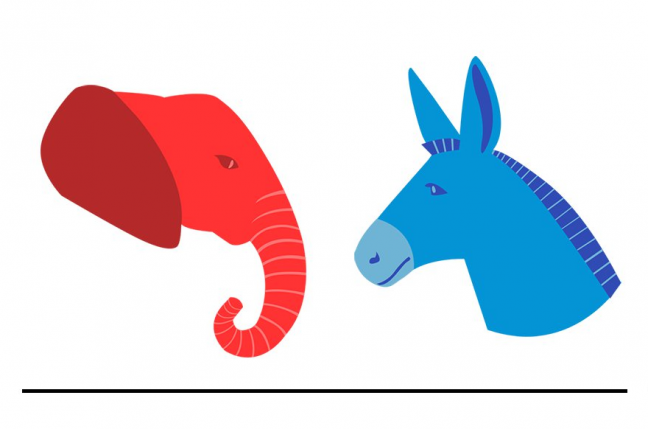In an ever-increasing factional society of identity politics, the Republican Party holds true to its roots of being a coalition of individuals with ideas, not monolithic groups of characteristics.
The Republican Party is a big tent. We’re made up of individuals with different ethnicities, genders, sexual orientations, nationalities, incomes, education levels, etc. While recognizing and appreciating the rich culture and dignity of every individual, our party accepts these differences we have as what makes us so great.
As Democrats continue to narrow their welcome to the most myopic radical left group-think, Republicans are adopting more and more moderates and lapse leftists.
Centrist Democrats do not recognize their party anymore. These moderates do not believe in the current Democratic archetypes of universal healthcare, a socialist economy or mandatory confiscation of firearms. Even Hillary Clinton once said a single-payer health-care system “will never, ever come to pass.”
Not only are Democrats straying further to the left, but they are excluding the very people who hold moderate beliefs. Those who used to be members of the Democratic Party are banished if they do not agree with every minute extreme policy presented. Democratic “tolerance” only extends to people who agree with them and hold the same monolithic pedagogy.
Difference of opinion is not a foundation for compromise and progress to Democrats, but a threat needed to be squelched as proved by the sentiments of Maxine Waters, Nancy Pelosi and so many other leaders on the left who encourage confrontation and ostracism of people in everyday life with different ideological persuasions.
Conservative individualism, promoted by the Republican Party, mitigates homogeneous ideology by treating all people as dignified individuals with closely held ideals. This allows the right to appreciate all voices by being open to hearing innovative ideas that have the potential to better our nation instead of rejecting people after making abject assumptions about them based on the appearance of their character.
Because the Republican Party is not an exclusionary facet of identity politics, its conservative coalitions are diverse and growing.
Traditionalists follow the political philosophy of Aristotle and Edmund Burke by acknowledging natural law as an objective moral order that should be recognized and implemented by government and society and only governments which coincide with natural law are benevolent.
Libertarians stress liberalization and the unrigging of the economy by promoting the free market with little government intervention.
Libertarians are known for being much more socially liberal than the Christian right, which supports socially conservative policy that reflects Christian theology.
The coalition of moderates is continually growing within the Party due to the reactionary exodus from the Democratic Party’s sprint to the radical left.
Point Counterpoint: Democrats should focus on their own problems instead of impeachment proceedings
So many more coalitions reveal themselves under the big tent of the Republican Party, but one may ask how such a diverse group of people get together to unify under conservative principles. How do people with juxtaposed characteristics, whether it be urban or rural, highly educated or minimally educated, theists or atheists, pro-Trump or anti-Trump conservatives come together under one roof?
What unites all people of the Republican Party is not having the same culture or heritage, or even the same income or education. But rather, the consolidating force is the pursuit of a better life of all people in our nation, even those whom we disagree with. The Grand Old Party recognizes the complex facets of our world and understands that diversity of thought can lead to innovative compromises that benefit all.
If you wish to join the party that promotes compromise among people of different ideological persuasions instead of homogeneous group-think, vote for the Republican Party in the next election.
Emily Smith is a junior majoring in political science and philosophy. She is the Grassroots Liaison of the College Republicans of UW-Madison.
Read about the College Democrats’ party coalitions here.


